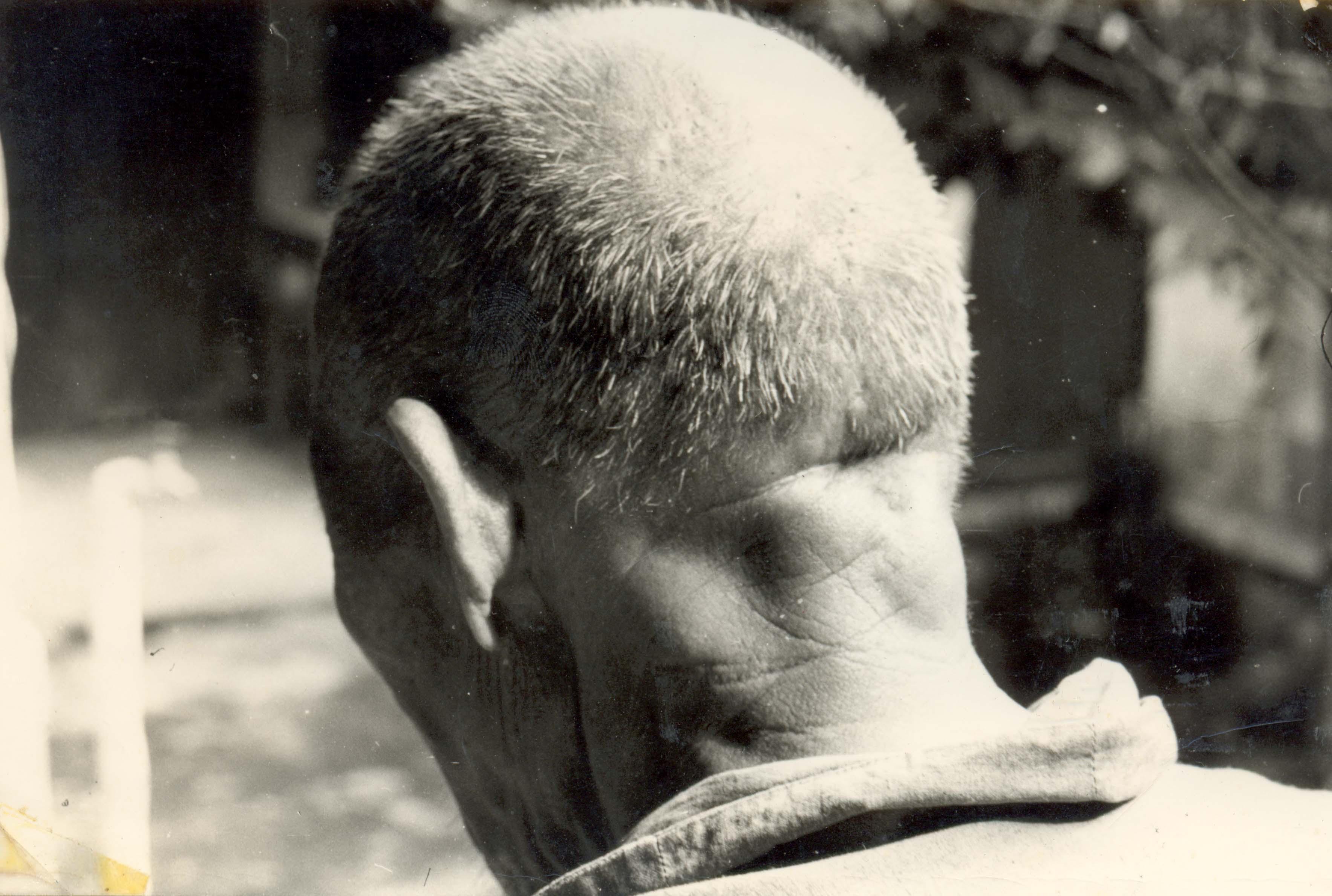Testimony of Zhu Xisheng

"The Japanese soldier hacked me on my back neck.”
My hometown is Shou County, Anhui Province. About in the 20th year of the Republic of China, my father took me to Nanjing because he could not make a living in our hometown. He collected and sold wastes for a living then, I followed him to collect junks. We lived from hand to mouth.
I was 22 years old in the 26th year of the Republic of China (1937). The Japanese army attacked Nanjing and entered the city on November 11 of the lunar calendar. Before that, my father and I went to the refugee camp , which was then called the Gospel Hall, now is the No.19 middle school.
One afternoon, near four o’clock, the Japanese soldiers came in to arrest people. I pretended to be ill and laid on the ground, covered with a quilt. I showed them a certificate issued by the refugee shelter. The Japanese soldiers tore it up without looking. They took me and two other men to the river, and when we got to the river, the other two were hacked to death by the Japanese soldiers. Then a Japanese soldier wanted to kill me, I begged them, saying that I had to support the family and took care of the old man. I used gestures for fear that they would not understand me. As I was speaking, three more Japanese soldiers came, and before I could see them clearly, one of them hacked me on the back of the neck, I fell to the ground. I still had some consciousness at that time, and because I was wearing a torn overcoat, I bit my collar , holding my breath to pretend to be dead. After a few minutes, the Japanese soldiers kicked me with their feet, but I pretended to be dead and didn’t move. Then they said something like "dead" and left.
It was about five o’clock in the evening, and it was getting dark. I suffered from the painwith slimy blood covered on the clothes. Considering that it was already dark, and the Japanese army had gone away, I decided to run away quickly! So, I put up with the pain and ran to the refugee camp. As the streets were full of dead bodies, I stumbled and crawled all the way, it was not easy to get back to the place where I had lived. Seeing me like this, my father was shocked, and the refugees didn’t dare to let me stay there. Later, some good-hearted neighbors helped me by getting some incense ashes and applying the ashes to my wounds. Before dawn, I was sent to a remote shabby thatched cottage. At this time, I was accompanied by my father alone. We suffered from hunger for three or four days because we had nothing to eat, so my father risked to take me home. Fortunately, there were still some neighbors alive, so we asked them for some food.
We lived in this way until the coming of the New Year’s Day . It was snowing one day, I heard footsteps, and then the Japanese soldiers entered the house. They pulled up my arm to see if I had a watch on my wrist. Then they saw the wound on my back neck. They began to interrogate me. At that time, I did not dare to say that was cut by the Japanese soldiers. So with hand gestures, I tried to explain with "Boom" and "Pa" sounds, meaning that I was wounded in the Japanese airstrike, so finally they believed and went away. My neighbor had advised me to go to the Drum Tower Hospital to treat my wounds, but I didn’t dare to go. I lay in bed at home for more than three months, about a hundred days, then my injury got better and I was able to get out of bed. Until now, I still have a scar three or four inches wide on the back of my neck.
?When I suffered this disaster, my father was frightened and worried, soon he became demented, and in the following September he died. The wound made it difficult for me to work, and I had no family until I was thirty-one. My neighbors and the workers at my recycling company were all aware of the experience I suffered .

